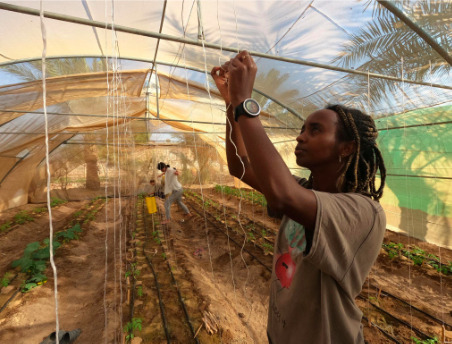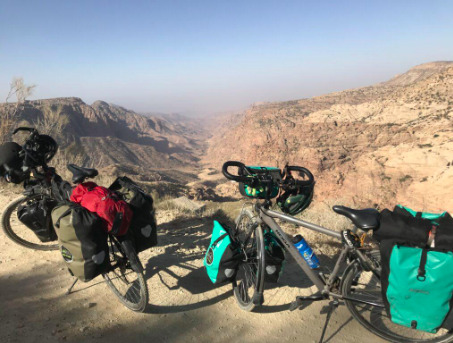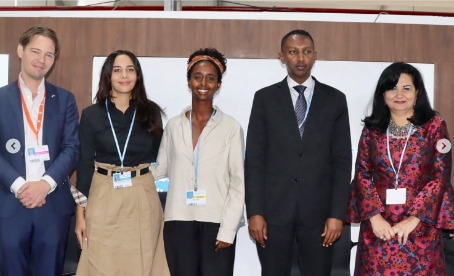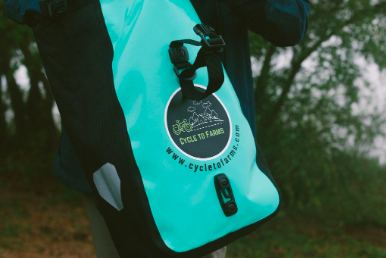Click here to find out more about Aisha Hassan’s Travel scholar experience through The Middle East! Would you also like to benefit from our Travel grant? Find out more about the application procedure and criteria here
"Of the total 7000 km, we cycled 1500 km in Jordan and Egypt to explore and document regenerativeagriculture practices from a farmer's perspective, with the aim of gaining a bottom-up understanding ofwhat regenerative agriculture means."
the grant helped a lot to cover some of the costs as we traveled through the Middle East. Although we mainly travel by bike, we had to take a flight from Athens to Amman because we couldn’t cycle through Syria. Also from Agaba (Jordan) to Nuweiba (Egypt), we had to take a boat to cross the Red Sea. We also needed a flight from Cairo to Nairobi because we decided not to travel through Sudan due to the current instability in Sudan. The grant also helped us stay longer in Jordan and Egypt to extend our visas. We stayed mainly with farmers and hosts, so in terms of accommodation, we were largely covered, but staying longer required more costs for food.
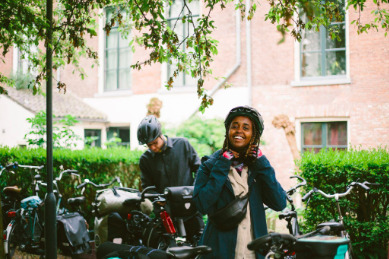
The Lutfia Rabbani grant has enabled me to travel to spend more time in Jordan and Egypt and because of that, we were able to grow our network in the Middle East and meet various people in the field of regenerative agriculture. Learning from different pioneers in the Middle East and sharing their stories with the world. I believe that these networks will remain and will be important for the further development of the Cycle to Farms project.
we are building a great social community by visiting different people in the field of sustainable agriculture, from policy makers to farmer activists to journalists and filmmakers. We connected different actors in the field. For example, when we were in Jordan visiting FadoulKawar in Madaba, we invited the Dutch agricultural attaché for Jordan and Egypt and two Wageningen researchers on water management to the farm. This led to a very interesting exchange of knowledge on which an article was published. More recently, we decided to broadcast our trip in the form of a documentary supported by a Palestinian-Canadian filmmaker whom we met during our trip to Amman. She has been our mentor for the past two months and has helped us translate our findings into a future documentary.

